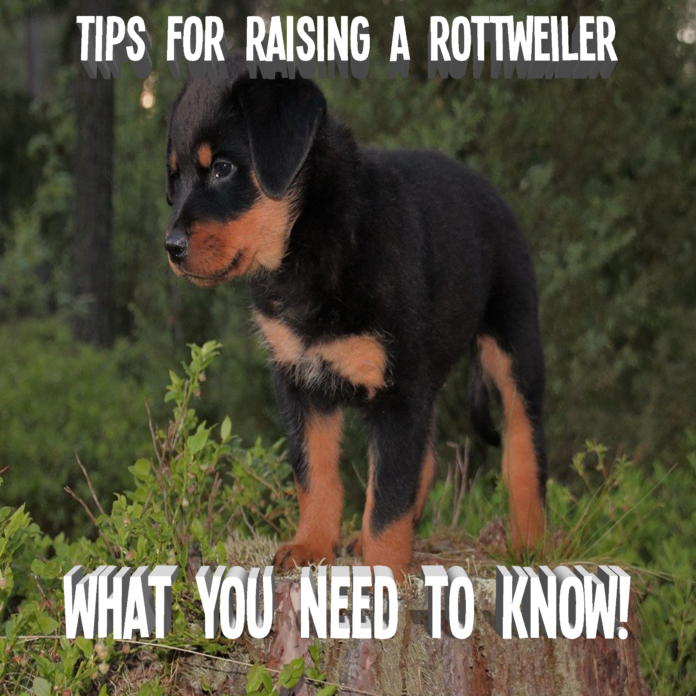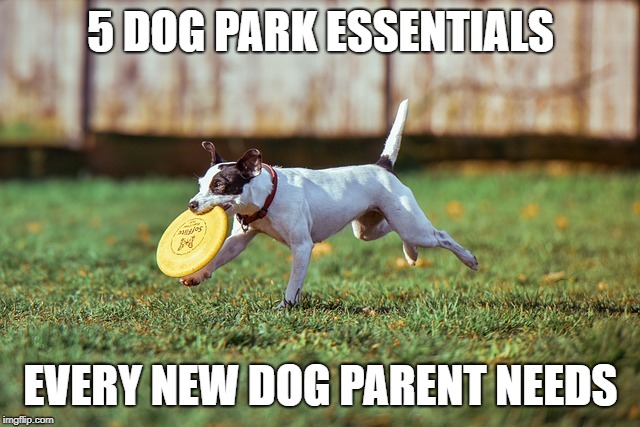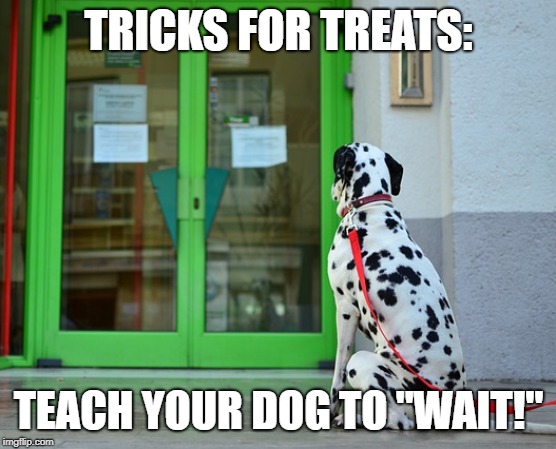Choosing the perfect dog breed for yourself, or your family can be a very major decision. Making sure you find the right breed for your needs and requirements in your new canine companion is crucial, and one of those breeds that stand high among the rest is the renowned, and majestic Rottweiler.
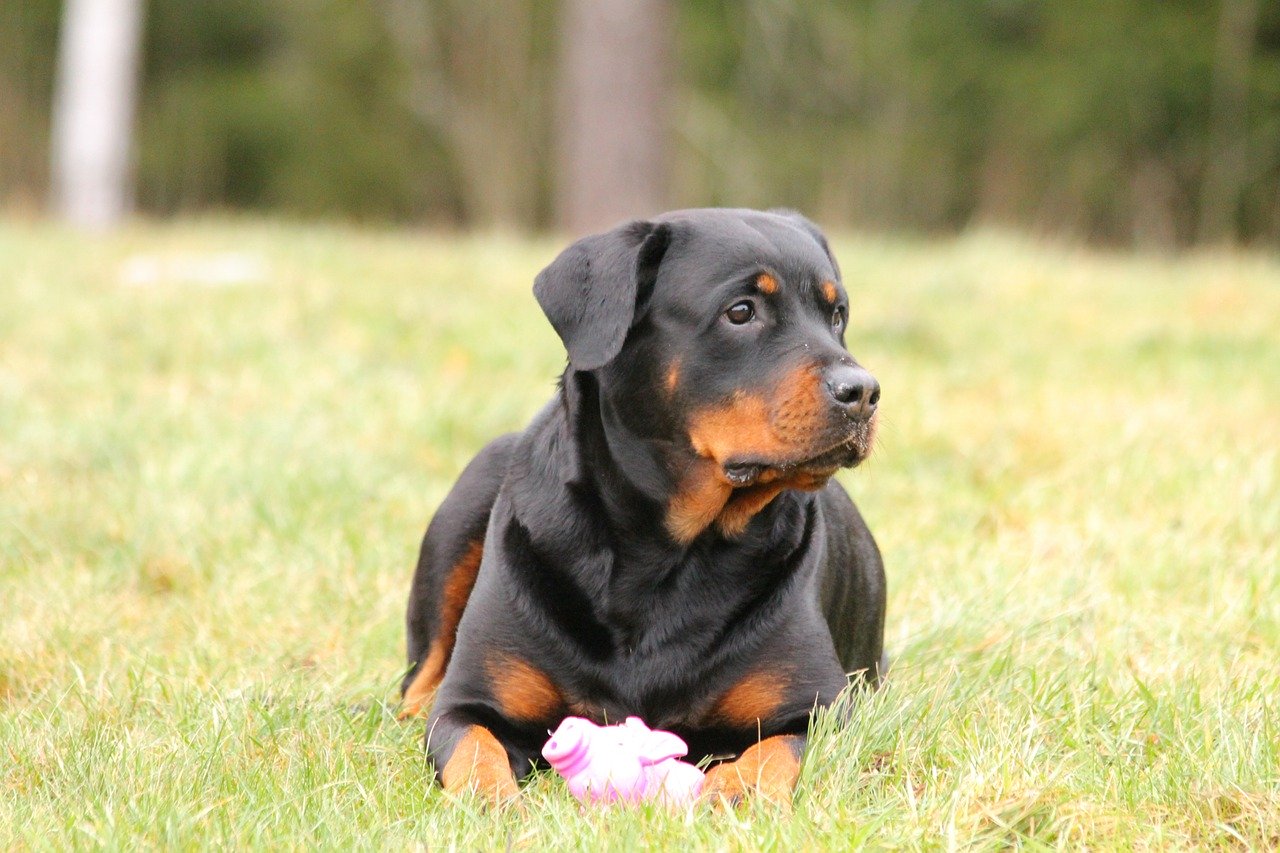
Breed Information:
- Color: Black and Brown
- Size: Medium to Large Breed
Male 50–60 kg (110–132 lb)
61–69 cm (24–27 in)
Female
35–48 kg (77–106 lb)
56–63 cm (22–25 in)
- Coat – Double-coated, short, hard and thick
- Litter Size :average 8 to 12 although larger litters are known
- Life Span: 8-10 Years
History
Rottweiler dogs are said to be one of the oldest dog breeds known to man. Originally spawning as a descendant of the Roman drover dogs.These dogs were later brought to Germany where they were used for guarding, herding, and driving cattle. The town they were later named after was called Rottweil.
Traits and Characteristics:
The Rottweiler is typically a cool, calm, confident and courageous dog and a personality some may cherish as being goofy or silly when at play. However, Rottweilers do not form bonds immediately or make indiscriminate friendships. A Rottweiler is self-confident and responds quietly, with a wait and see response. It is in the breeds nature to protect home and family, and is an intelligent dog of extreme hardness and adaptability with a strong willingness to work, making him especially suited as a companion, guardian and general all-purpose dog.
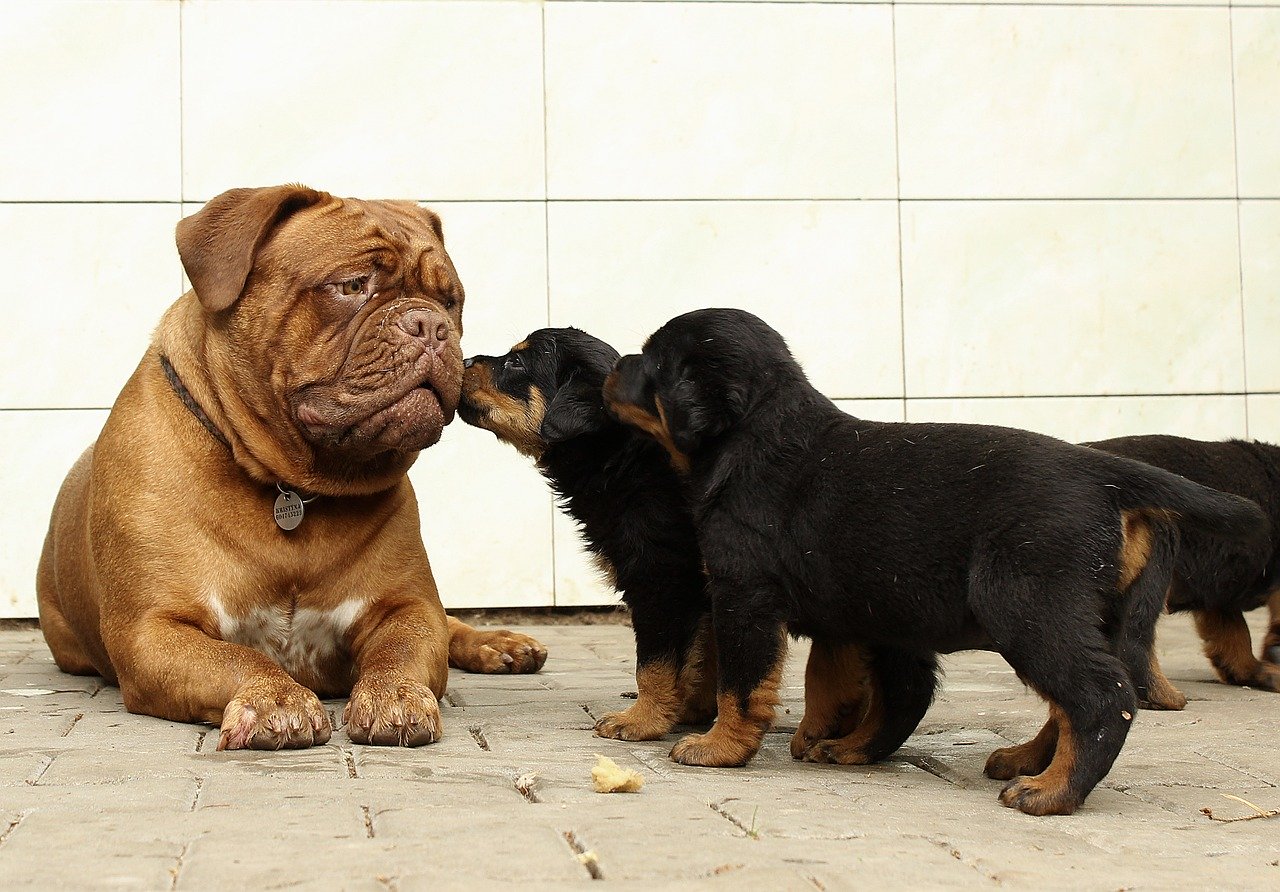
Early Life Stages:
In the early life stages of your Rottweilers’ life they will be very exploratory, inquisitive, and adventurous. They will enjoy sniffing, chewing and this is very natural as this is how they learn and explore. Rottweilers are very intelligent and are very easily potty trained.
About six weeks into your rottweilers life you should begin your remote clicker and obedience training. Rottweilers require obedience training and this must start at an early age. You must be able to make time to train or have them trained to ensure their playful aggressiveness is manageable.
Behavioral training using the use of collars, and clickers are ideal to stop negative behaviors. Rottweilers puppies require a lot of love and attention, as well as outdoor exercise. Socializing your rottie with other dogs is crucial at a young age as well to ensure they are calm and collected when associating with other dogs going forward.
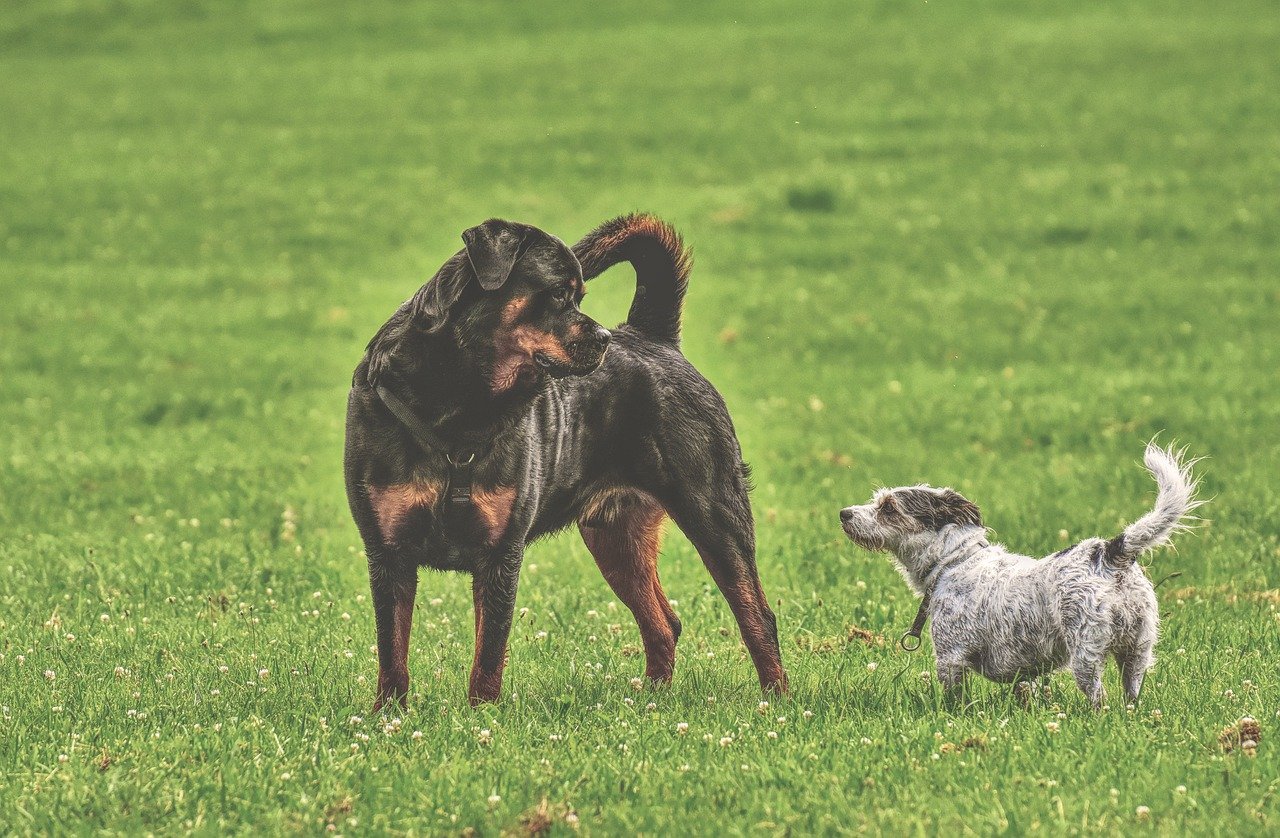
Adult Life Stages:
In adult hood your rottweiler will be the loyal protector, and guard for your family. Protection methods still should be taught by professionals but instinctively they are protectors so even if they are not fully trained in dire situations they are intelligent and will be there for their owners.

Common Health Issues
When your rottie reaches adulthood they can be prone to obesity if not receiving proper exercise. Like many other larger breeds as they age they can become prone to hip dysplasia. “Osteochondritis dissecans” is another condition which affects the shoulder joints, this could pose a problem due to the breed’s rapid growth rate.
The Rottweiler is very prone to osteosarcoma which is among the most common causes of early death in Rottweilers. For unknown reasons, Rottweilers are more susceptible than other breeds to become infected with parvovirus, a highly contagious and deadly disease of puppies and young dogs.

Rottweilers aren’t perfect for everyone’s’ needs as they do take considerable amount of love, care, bonding and training. For the dog parent looking for a strong reliable and loyal companion with a heart of gold a Rottweiler would be an excellent choice!
Happy Parenting!
Dog Parent Academy

